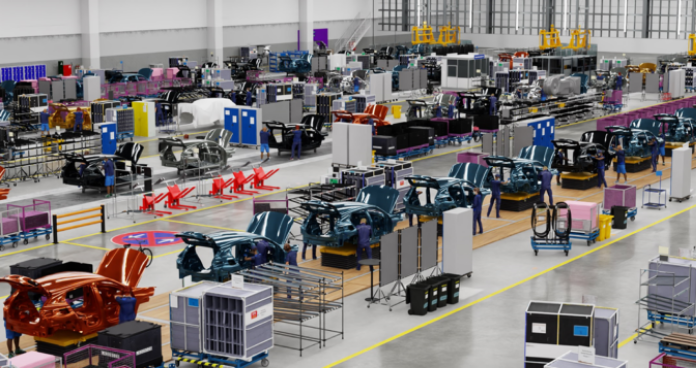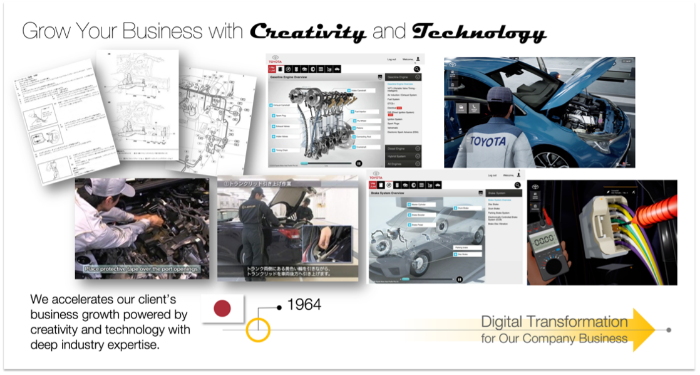In recent times, the term ‘Metaverse’ has gained widespread familiarity, with almost everyone having heard of it. However, the practical implementation of metaverses in our daily lives remains limited, as they are mostly discussed in news articles.
Will the metaverse end up merely a passing trend or will it be a lasting phenomenon?
We firmly believe that the metaverse technology will bring about substantial transformations and wield a profound influence on multiple industries, particularly in manufacturing.
It is poised to play a pivotal role in enhancing our lives, and we anticipate its significant impact on manufacturing sales.
Unveiling a New Era of Immersive Transformation with Metaverse Technology
Ordinary metaverses currently lack the necessary high polygon count to facilitate extensive connections, resulting in experiences that are interesting but not particularly remarkable. However, what if we were to design an environment that is truly exceptional, such as a luxurious hotel lounge featuring breathtaking computer graphics that could easily be mistaken for reality?
Additionally, instead of aiming for mass connectivity, what if we targeted a select audience?
Traditionally, customer interactions have predominantly occurred through online channels like websites and social media, as well as in physical spaces such as stores and face-to-face communication.
With the emergence of the metaverse as a new platform, we now can provide customers with a wealth of information anytime and anywhere, like the experience of being in a physical store. This capability will significantly enhance customer awareness and contribute to leading acquisition in marketing efforts. It is crucial not to overlook the significance of touchpoints within the metaverse platform as a futuristic marketing strategy . When combined with the utilization of digital humans (as discussed in another article), the potential of the metaverse becomes truly boundless.
In the era of CASE (Connected, Autonomous, Shared, Electric), a noticeable shift is occurring in the car sales model, transitioning away from traditional dealership sales toward direct sales. Mercedes-Benz has already implemented this model in the UK, with plans to do the same in Germany. Following suit, BMW Group will gradually adopt this approach in the UK, commencing in 2024. Notably, when examining Tesla’s remarkable success, one cannot ignore their direct sales approach. In this new era, the survival and prosperity of companies depend on their ability to deliver a fresh customer experience, achieved through an integrated marketing strategy that harnesses the new touchpoints offered by the metaverse in conjunction with traditional methods.
The metaverse technology holds value not only in B2C (business-to-consumer) settings but also in B2B (business-to-business) contexts. In B2B sales, the key to success often boils down to demonstrating that the returns outweigh the investment. However, several obstacles must be overcome before customers can fully grasp the potential returns. These obstacles include complex structures, intricate specifications, and expertise that only the responsible individuals can comprehend. Consequently, even if it is inefficient, decision-makers may continue using the same equipment for an extended period.
This is where the concept of the ‘Virtual Factory’ can prove invaluable. Virtual simulations showcasing products in operation enhance understanding and aid decision making. For instance, let’s consider a company that introduces a new sensor product. While its sensitivity remains the same as the previous version, the addition of a motor enables the sensor head to move. By bringing the sensor closer to the product, the need for previously allocated space is eliminated. Consequently, materials can now be placed in the previously occupied space, reducing the time and labor costs associated with material handling. The resulting cost savings can offset the expense of replacing the sensor within just a few years.
Conveying the benefits of a new sensor using traditional means such as paper or a website filled with blueprints, letters, and numbers can present challenges. However, the Virtual Factory emerges as a powerful tool capable of effectively showcasing the strengths of the new product. Additionally, it also serves as an efficient platform for simulating factory lines, as demonstrated by the notable case of BMW Group’s virtual plant, which exemplifies the immense potential of the Virtual Factory.
Operating as a versatile platform, the Virtual Factory can seamlessly integrate with various technologies, thereby providing additional value and expanding its capabilities.

https://blogs.nvidia.com/blog/2021/04/13/nvidia-bmw-factory-future/
The metaverse, encompassing digital showrooms and Virtual Factories, possesses the potential to reshape the manufacturing landscape, revolutionize conventional processes, and exert a substantial influence on sales. By leveraging digital technologies, businesses can unlock fresh sales opportunities and deliver personalized products and experiences to their customers. We perceive the metaverse platform as an innovative communication tool, acknowledging that effective communication is the foundation of successful business operations.
Understanding the desire of customers and the reason behind the product offerings are crucial, and without effective communication, achieving business success can be challenging. The metaverse wields the power to expand your communication channels and connect you to success.

With a vast array of digital technologies at our disposal and profound insights into the manufacturing industry, we have been steadfast in our dedication to enhancing communication through technology for the past fifty years. Our product offerings have evolved significantly, progressing from hand-drawn illustrations to embracing the transformative capabilities of the metaverse. Our specialization lies in empowering businesses with comprehensive support for customer experience design, equipping them to thrive in this dynamic new era.
